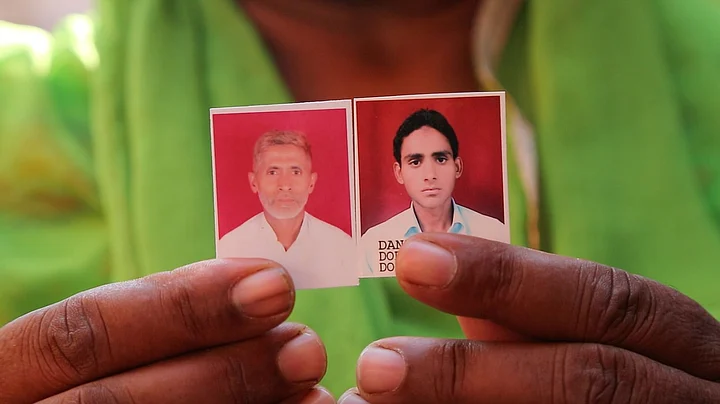A fast-track court on Thursday, 26 March began the trial in the case of Mohammad Akhlaq, who was lynched by a mob over suspicion of storing beef in his house in Dadri’s Bisada village five years back.
Akhlaq’s son Danish, who was 22 then, was gravely injured while attempting to save his father.
Following the framing of the charges against the suspects on 25 February 2021, on Thursday, the first day of the trial, the victim’s family could not appear before the court.
WHAT HAPPENED IN THE TRIAL?
The matter was heard by Dr Anil Kumar Singh, additional district judge.
The counsel for the victim’s family, Yusuf Saifi said “The charges were framed against the suspects recently. The defence lawyers moved discharge applications but they were rejected by the court. Now, the trial has begun in this case. The victim’s kin and witnesses are required to testify in the court for evidence.”
Saifi informed that the family had not received any court summon for appearance. “They may attend the next hearing on 14 April, once they receive summons,” he added.
The key witnesses in the case include Akhlaq’s daughter Shaishta, son Danish, and wife Ikraman.
WHO ARE THE SUSPECTS?
There were 18 suspects in the case, of whom two have died and three were juveniles at the time of the incident.
All 13 adult suspects have charges against them. Saifi further informed that the accused who were minors at the time of Akhlaq’s murder will be tried by the Juvenile Justice Board.
Nineteen accused were named in the testimonies of three witnesses – Akhlaq's wife Ikrama, daughter Shahista and Danish. Of the 19, 18 were charge-sheeted by December 2015, the family said.
The government has also given security to Akhlaq’s elder son, Sartaj, and brother, Jaan Mohammad.
WHAT HAD HAPPENED IN 2015?
On 28 September 2015, Akhlaq was beaten to death and his son, Danish, was severely assaulted by a mob in his village. They had accused and punished him for storing and eating beef.
The mob, which had gathered after a public announcement from a neighbourhood temple, attacked Akhlaq and his son even amid cries of family members that said the meat was not beef.
Later, a veterinary officer’s report, who was from the Uttar Pradesh government, revealed that the meat found was not beef.
Ram Saran Nagar, the counsel for the accused said, “The suspects have denied the charges. The court will begin the trial now.”
(At The Quint, we question everything. Play an active role in shaping our journalism by becoming a member today.)
